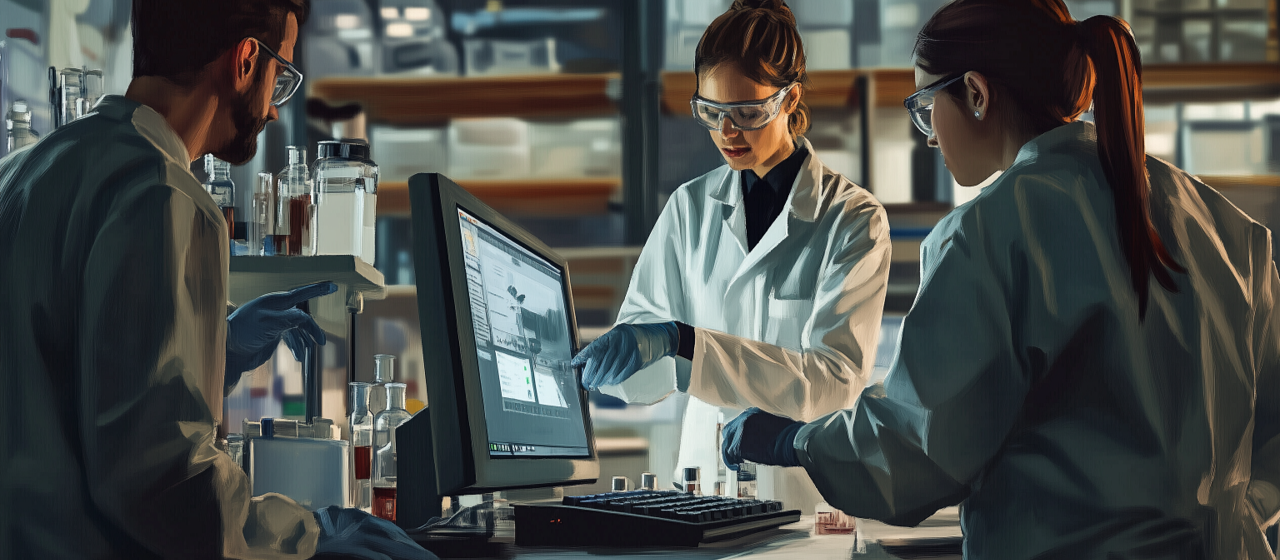
Application use cases for AI in generative chemistry
The use of AI in chemistry is accelerating research, improving efficiency, and driving innovation👉 Practical application of new ideas to create value.. As AI technology continues to evolve, we can expect even more exciting developments in this field, with the potential to transform the way we discover, design, and synthesize new chemicals and materials.
Drug Discovery and Development:
AI is revolutionizing drug discovery by rapidly identifying potential drug candidates, optimizing molecular structures, and predicting their properties. This accelerates the development of new therapies and reduces costs associated with traditional drug discovery processes.
Materials Design:
AI algorithms are being used to design novel materials with tailored properties, such as improved strength, conductivity, or reactivity. This opens up new possibilities for developing advanced materials for various applications, including electronics, energy storage, and healthcare.
Chemical Synthesis Planning:
AI-powered tools are streamlining the process of designing chemical synthesis pathways, enabling chemists to explore more efficient and sustainable routes to synthesize complex molecules.
Predictive Modelling and Simulation:
AI models are being used to predict the properties and behaviour of chemical systems, enabling scientists to simulate experiments and optimize reaction conditions before conducting them in the lab.
Data Analysis and Interpretation:
AI algorithms are analysing vast amounts of chemical data from experiments, literature, and databases to uncover hidden patterns and insights, leading to new discoveries and the development of better models for predicting chemical behaviour.
IP Considerations
Generative AI is transforming drug and materials discovery by accelerating research and reducing costs. AI analyzes vast datasets to identify promising drug candidates and novel materials, streamlining development. However, this raises intellectual property👉 Creations of the mind protected by legal rights. challenges regarding ownership and protection of AI-generated inventions👉 An invention created autonomously or semi-autonomously by an AI system.. While navigating evolving legal frameworks and regulations, companies should strategically manage their IP to maximize the benefits of generative AI while safeguarding their AI-generated inventions and maintaining a competitive edge.
Listen here to a brief audio summary of Laura Fè’s guide on “Applications of Generative AI in Drugs Development and Materials Discovery: IP Considerations”:
Read here the full article on “Applications of Generative AI in Drugs Development and Materials Discovery: IP Considerations”:
Challenges for AI in generative chemistry
AI-generated inventions in chemistry, while promising, present challenges that need to be addressed for responsible and effective integration.
Data Quality and Availability:
AI models heavily rely on data for training and prediction. In chemistry, obtaining high-quality, diverse, and relevant data can be challenging due to proprietary information, experimental limitations, and the sheer complexity of chemical reactions.
Model Interpretability and Explainability:
AI models, especially deep learning ones, often function as “black boxes,” making it difficult to understand the reasoning behind their predictions or designs. This lack of transparency can hinder trust and acceptance in scientific communities and regulatory bodies.
Safety and Toxicity Prediction:
While AI can accelerate the design of new molecules, predicting their safety and potential toxicity remains a challenge. Ensuring the safety of AI-generated compounds requires robust validation methods and careful consideration of potential risks.
Intellectual Property and Ownership:
Assigning inventorship and ownership of AI-generated inventions in chemistry raises legal questions. Determining who should be credited and rewarded for AI-generated discoveries requires therefore careful consideration.